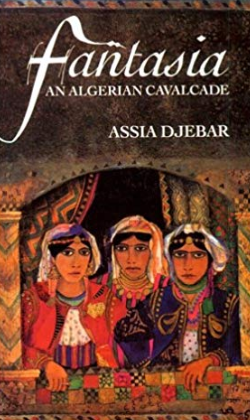Review of Fantasia: An Algerian Cavalcade

The Article below was published in Vol. 135, Issue 6 of the Lake Forest College Stentor on March 6, 2020.
By Maryam Javed ’21
Opinions Editor
Fantasia: An Algerian Cavalcade by Assia Djebar, accounts the Algerian loss in 1830 due to the French conquest and delves into the powerful oral accounts of rural Algerian women through their own life experiences, describing their role in the Algerian independence struggle.
The novel is a first-person narration that overlaps with the author’s personal life. The second half of the novel is comprised of various sources during the French conquest of Algeria, which spanned from 1830 to 1851. The history of Algeria is outlined throughout this novel, and what makes it even more fascinating and informative is the fact that the author’s opinion and her experiences make the novel more enthralling to read.
One of the most notable aspects of this account was the fact that Djebar gave women in this novel a political voice. The participation of these women in the resistance against the French emphasizes their everyday experiences in Algeria. Women in this novel were both subjugated in general by the Algerian male society and were also subjugated to being treated as objects of the French colonization.
I really liked the perspective of women from this book. Sentiments of a potential Algerian feminist movement by giving women a voice. It allowed women to tell Algerian history through their own stories and perspectives, in addition to providing valuable insights into Algerian culture. I also thought the shifts between fictional storytelling and information from the author’s personal life were extremely powerful, and despite the shifts, the novel was still easy to follow and was very interesting and informative to read.
Overall, I would definitely recommend this book. People with an interest in Middle Eastern and North African politics and culture would definitely benefit from reading this and also those who are passionate about women’s rights as well. I would give this book 4/5 stars because the language was difficult to understand at times, but overall the book as a whole is worth reading.
